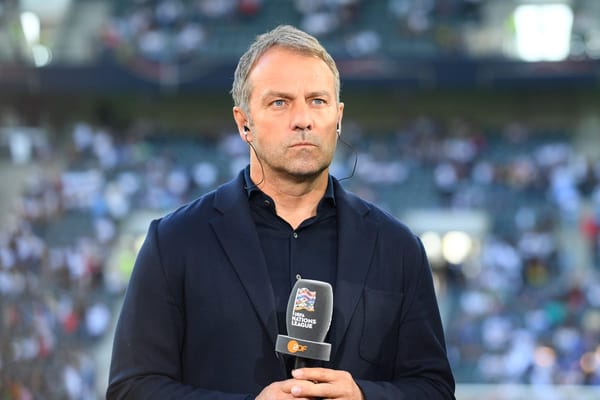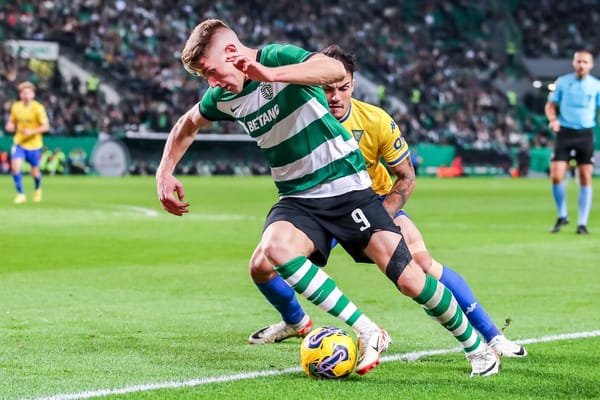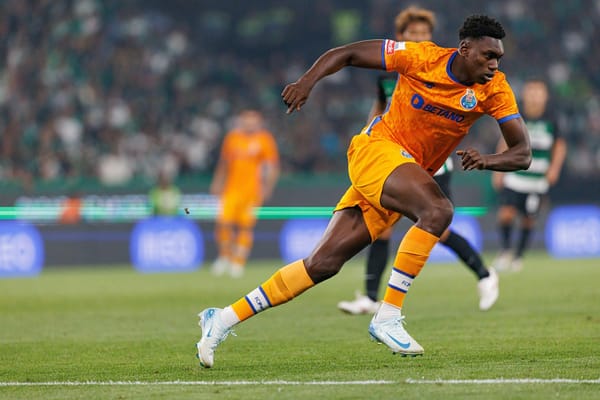Ode to Xavi: (im)perfect coach for (im)perfect Barcelona
Xavi Hernandez has done so much for Barcelona despite his job being impossible at times. Here's an ode to him, the legend of the club.
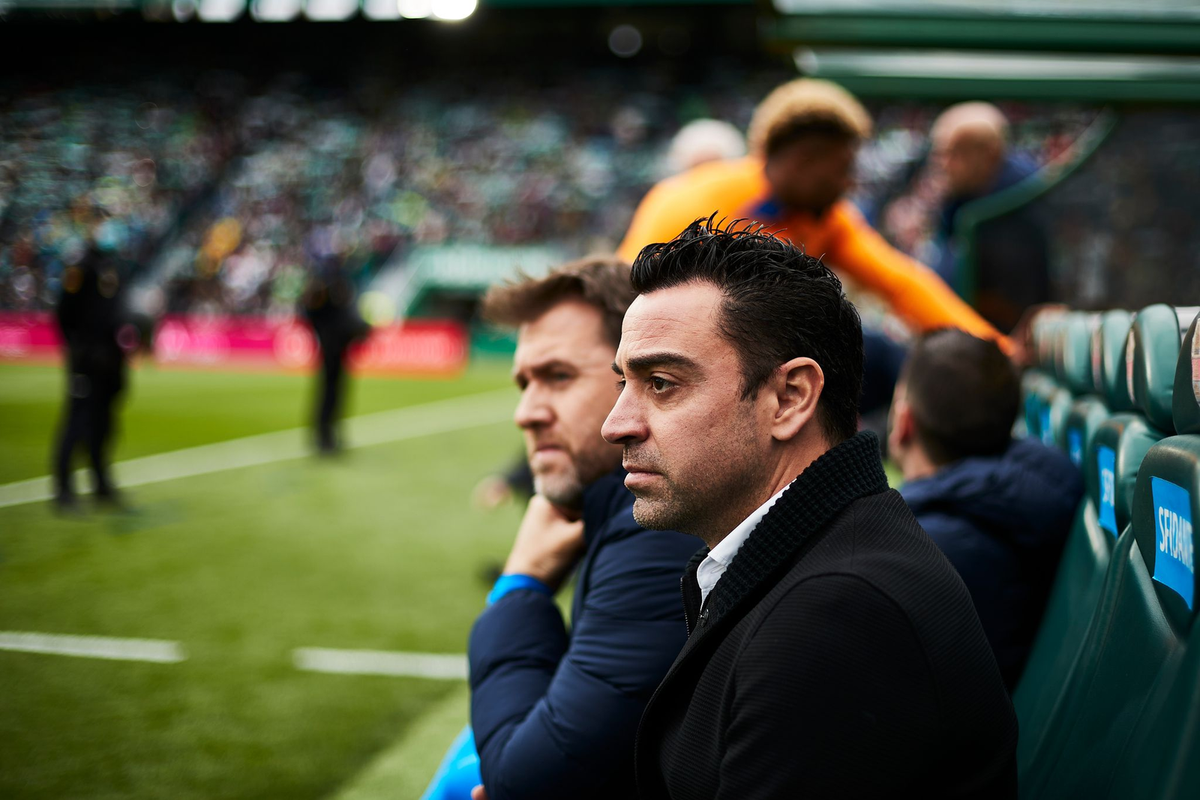
In Spain they sometimes say ‘querer estar en misa y en procesión’, roughly meaning you want to be both at mass and in the procession. Depending on where you are, of course, they would also tell you ‘no se puede hacer tortilla sin romper los huevos’, or you can’t make an omelette without breaking the eggs. It’s their version of saying you can’t have your cake and eat it too. It’s impossible. But sometimes, the impossible is exactly what you’re required to do. In fact, if you are a Barcelona coach, the impossible is even expected of you. Or better yet, if you are a Barcelona coach, the impossible does not exist in your mind. It simply mustn’t. If it does, you’ve already lost.
Last Saturday, Barcelona travelled to Anoeta and clinched a rather miserable 1-0 win against Real Sociedad, a team coached by Imanol Alguacil. It was miserable because Xavi’s men had no right winning that game in the first place; the hosts were the far better side for the majority of the clash and played their visitors off the park. Quite literally too. Barcelona could not maintain any semblance of control or impose their style for the better part of the whole match. But they won. Somehow, against all the odds, all the stats and even against the infallible eye test – they won. It wasn’t pretty, far from it, but it got them the crucial three points they needed after disappointment in El Clasico.
Incredibly enough, it was an injury-time header from Ronald Araujo that sealed the deal for the Catalans as everyone erupted into a thundering celebration. Well, almost everyone. Everyone, that is, except for Xavi himself. Why? Simple: he had failed to do the impossible; he had failed to live up to the expectations and the demand; he had failed to make the omelette without breaking any eggs. He knew just winning was never going to be enough. And he was right. The players may have celebrated the victory, the fans in the stadium and at home were no doubt delirious, and even Joan Laporta, sitting in his VIP box, must have been over the moon. Barcelona had done it; they had won the game they had no right to win. But the joy, while certainly ecstatic, was short-lived. Soon, ‘we won but had no right to win’ changed into simply ‘we had no right to win’. And what a damning realisation that is for an institution like Barcelona. They made the omelette but had to break the eggs too. Good enough for most. Not nearly good enough for Barcelona.
Ahead of the clash against Shakhtar Donetsk some time ago, Xavi said: 'The model of play is what’s important' and he reiterated that after the Clasico defeat too, stating: 'Believe me, if we play this way, we will win the league.' Clearly, he understands the key to long-term success for Barcelona is in the how; the key is not just in the omelette but also in the eggs. Everyone wants them to play a certain way and the truth is, they are also required to play a certain way. Xavi’s job is to win as many trophies, sure, but it’s also to win as many trophies while also being a dominant force at all times. And that’s not even half of the requirement either.
Xavi must win trophies while coaching dominant football, while trying to survive a financial crisis, while having a brand new and extremely young squad, while losing a previous legendary core of the team including the greatest player in the history of the sport, while waiting for the Camp Nou to be restored, while fighting court cases, while under constant scrutiny by the media and the fans and while leading a total course correction of not just this squad but the Barcelona institution as a whole. So you see, winning is the omelette but the rest of the conditions are all the eggs Xavi is trying to juggle and somehow turn into a delicious meal without ever cracking the shell.
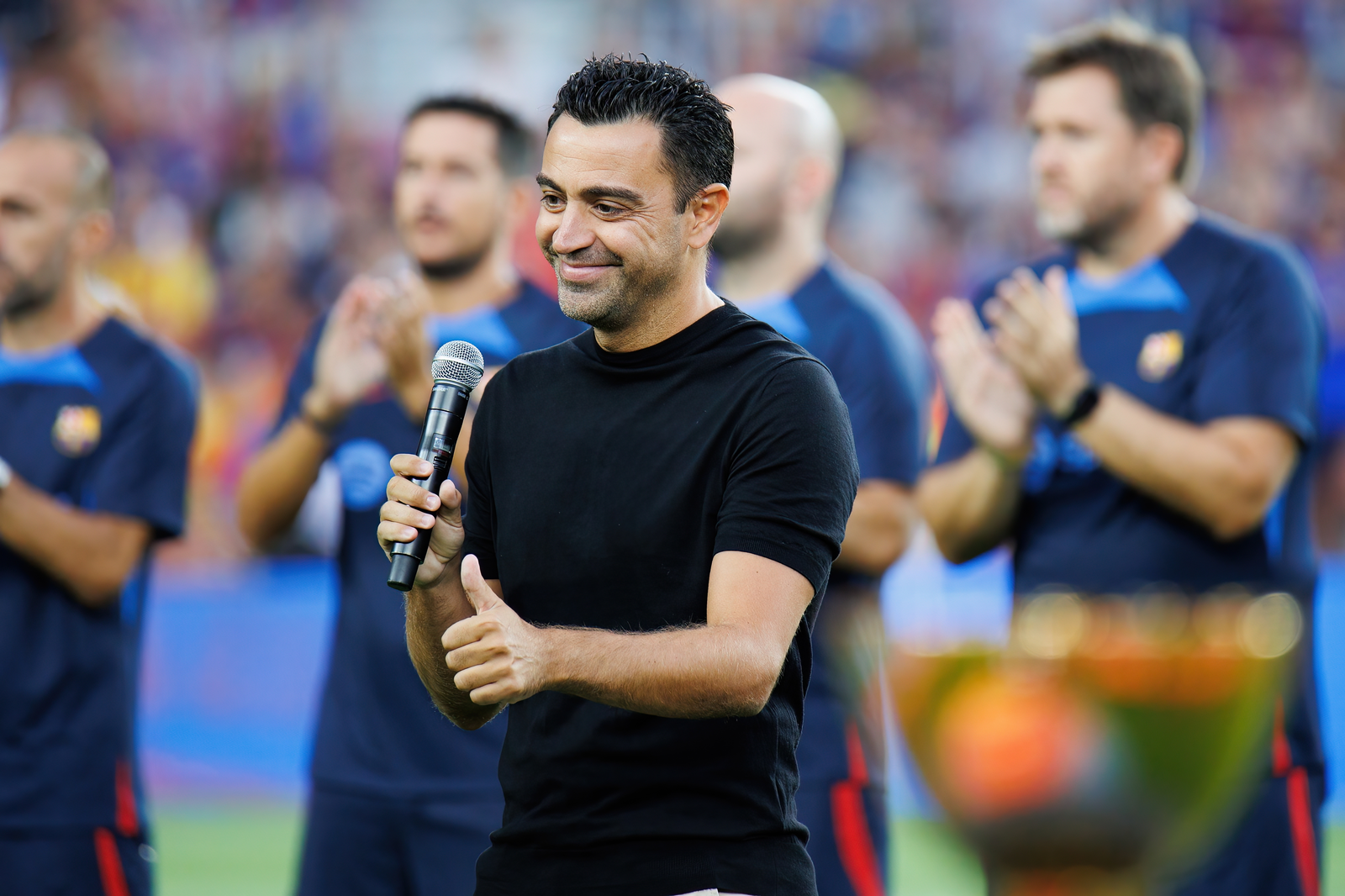
We as fans often fail to realise just how difficult that is. Rebuilds take time. But rebuilds under these conditions are often impossible. However, as we now know, impossible is exactly what we expect from a Barcelona coach; Xavi’s job may very well be the toughest job in all of football. But despite his flaws - of which there are still quite a few - he still seems to be the perfect man to take on this challenge. Because being a Barcelona coach is not just about being a tactical mastermind, which, ironically, is the exact thing Xavi is most criticised for. Being a Barcelona coach is about understanding the club, understanding the politics, understanding what it needs, when it needs it and being ready to make sacrifices to get there; he needs to be perfectly aligned with the club’s identity. To put it plainly, aside from having to do the impossible, a Barcelona coach needs to be one with the club too.
Following the team’s performance at Anoeta, many were hailing Alguacil’s tactical prowess. And rightfully so; Real Sociedad are a beautifully coached side who got the better of a comparatively star-studded team just to undeservingly lose in the final moments of the game. But would Alguacil do a better job at coaching - no, managing - this Barcelona side than Xavi? Highly unlikely. Need more proof? Just look at Quique Setien. Before he took over, he had been hailed as a tactical genius; a coach who could take smaller sides like Real Betis to incredible heights. And as a Real Betis coach, Setien was nigh-perfect. But as a Barcelona coach? Well, we all know how that ended.
But what about other coaches like Roberto De Zerbi or Mikel Arteta? Their projects at Brighton & Hove Albion and Arsenal respectively are somewhat comparable to Barcelona’s. Except, however, they are not; not in the slightest. We cannot fault their tactical acumen. Comparisons are difficult exactly because of the different circumstances but no one can deny both of these coaches are extremely good at what they do and their teams are equally well-coached. Better coached than Barcelona? Perhaps. In some aspects at least. But would that make them better Barcelona coaches than Xavi? Again, unlikely. Arteta has a Barcelona background, sure, but that’s no guarantee that would be nearly enough to take on the job in its full glory. Nothing is.
In an ideal world, Xavi would’ve started his Barcelona crusade as an assistant coach or perhaps even in the academy; that way he would have someone else to shoulder the burden of an impossible job while he’s gradually eased into the role. And then, after a couple of years of grinding, rebuilding and ultimately just surviving the storm, Xavi would take over a stable project, ready to take it to the next level; ready to take it back to the elite. But we don’t live in an ideal world; far from it.
Arteta, for example, has it easy in comparison. He, too, inherited a club in a sporting crisis but that’s (almost) all he has to endure. All Arsenal’s coach needed to do was take a broken team and turn it into a great one once more. It’s an incredibly difficult job for sure. But it’s also exactly that: a job. Singular. Before he had even started, Arsenal had Arsene Wenger steady a sinking ship; he kept the academy going, he kept the team together while the stadium was being renovated and he did his best to keep the football at a respectable level. And then in came Arteta. Sure, the likes of Freddie Ljungberg and Unai Emery had tried their hand before him but their stints were as ineffective as they were short. As if that wasn’t enough, Arteta walked into that job having previously been mentored by none other than Pep Guardiola himself. And still, with all of that head start that he had over Xavi, it still took his Arsenal project three years to click. Arteta is now in his fourth year as an Arsenal coach and the Gunners are yet to see their incredible efforts on the pitch translate to big silverware apart from the 2019/20 FA Cup gold.
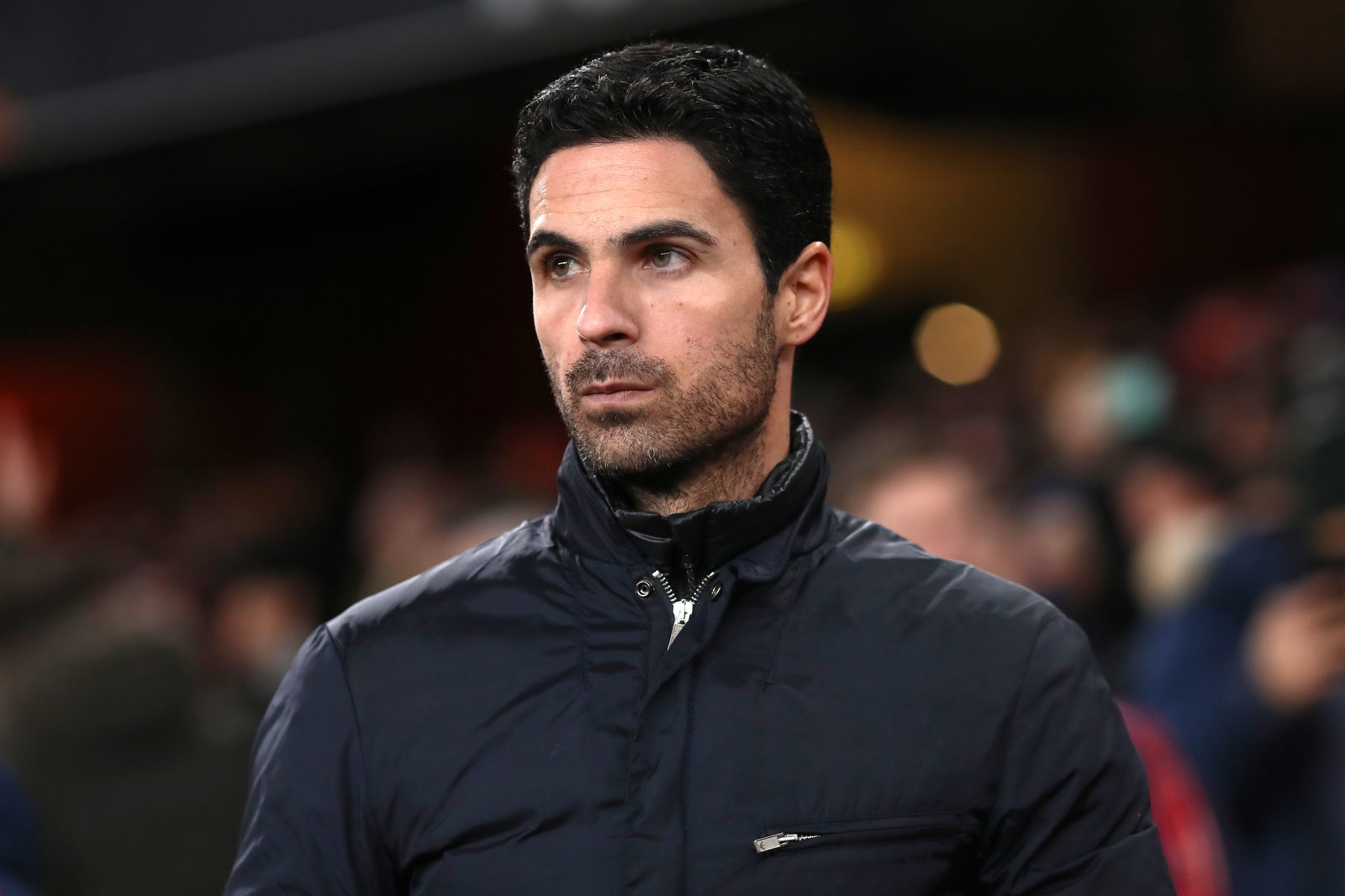
Would Xavi be given the same luxury? Would he be given the same time? No. Barcelona are a mess and they cannot compete with the riches of the Premier League or the billionaire clubs from the east. And their coaches also cannot be assessed by the same standards either. At Barcelona, no one cares how difficult your job is. At Barcelona, no one cares if your squad is incomplete. At Barcelona, no one cares if you're trying to build a long-term project. They care about the results and the long-term project. At. The. Same. Time. Omelette and eggs.
So given the circumstances, the financial struggles, the dark times, the squad overhaul, Messi's departure, I don't think an outsider would do a better job than Xavi, even if he was a better 'coach'. That's what makes Xavi suitable; he's got the toughest job in football but he's the best equipped man to handle it. And the proof is in the team he’s managing as we speak. The landscape of football is changing rapidly and Barcelona can either change with it or perish trying to stick to the ghosts of the past. That doesn’t mean they need to abandon their ideals but it does mean their approach to building the squad that will uphold those same ideas will be different. Guardiola’s golden generation remains the benchmark in terms of how we want to play and it still partly remains the benchmark of how we want to get there. But not quite.
One thing, however, is clear - modern football has made it impossible for member-owned clubs to compete with the financial juggernauts in the market; Barcelona are outgunned and even if it wasn’t for the crisis they are going through, they would likely be forced into similar deals, loans and big sales just to stay relevant. Even Real Madrid, whose financial health is much more stable, have had to take out a massive loan to appease their aspirations. And Barcelona? The age of players earning hundreds and hundreds of thousands of salaries and having millions upon millions price tags is over. The model is no longer the Barcelona of the mid-to-late 2010s. Philippe Coutinhos, Antoine Griezmanns, Ousmane Dembeles or even Luis Suarezs and Frenkie de Jongs are a thing of the past; to move forward Barcelona need to evolve but also stay close to their roots. In short, unearthing academy greats like the golden generation and following someone like Brighton’s policy is currently Laporta’s best bet. And the process has already begun.
It all started with the cleanup several years ago; since 2018/19, Barcelona have sold north of 70 players through direct sales or loan deals, including being forced to part ways with Messi. But all of that is a part of the course correction we’re witnessing at the moment. About two weeks ago, Barcelona lost the Clasico at Montjuic because their team was not deep enough and it lacked quality and experience where it mattered the most. But that Clasico loss was also just that - a solitary and ultimately irrelevant loss; three points in a 38-game season and a single step on a journey that will take years to complete. Laporta certainly didn’t like losing to Real Madrid that day. But he also wasn’t too stressed about it. Neither was Xavi. And neither should we be. This is very much a marathon, not a sprint.
Xavi is building a team consisting of hidden gems, academy talent and low-cost established players who are meant to plug the holes and inject the team with some much-needed instant quality. And that’s a long-term game; cut the salaries, get rid of the deadwood, groom academy prospects, find hidden gems in the market, use money wisely and adapt so you can still stay relevant. And Xavi needed to adapt. A lot. And he still does.
Barcelona’s oldest average starting lineup in 2023/24 was 29.1 years old. The season before it was 28.5 and the season before that 29.1. Under Xavi, they are yet to cross the 30-year mark and are going as low as 24.5. That’s remarkable. Barcelona are back playing Champions League football, they are back winning and challenging for titles and they are doing it with a bunch of kids and free signings while also enduring everything from court cases, poverty and all the way to immense and unrelenting pressure to succeed. But that’s the cost of greatness. And this young core of Pedri, Gavi, Balde, Araujo, Lamine Yamal and Fermin Lopez is the mirror of the new project. The team is far from ready and far from complete. But it will be in a couple of smart seasons. Xavi knows this too. All he’s doing now is buying time.
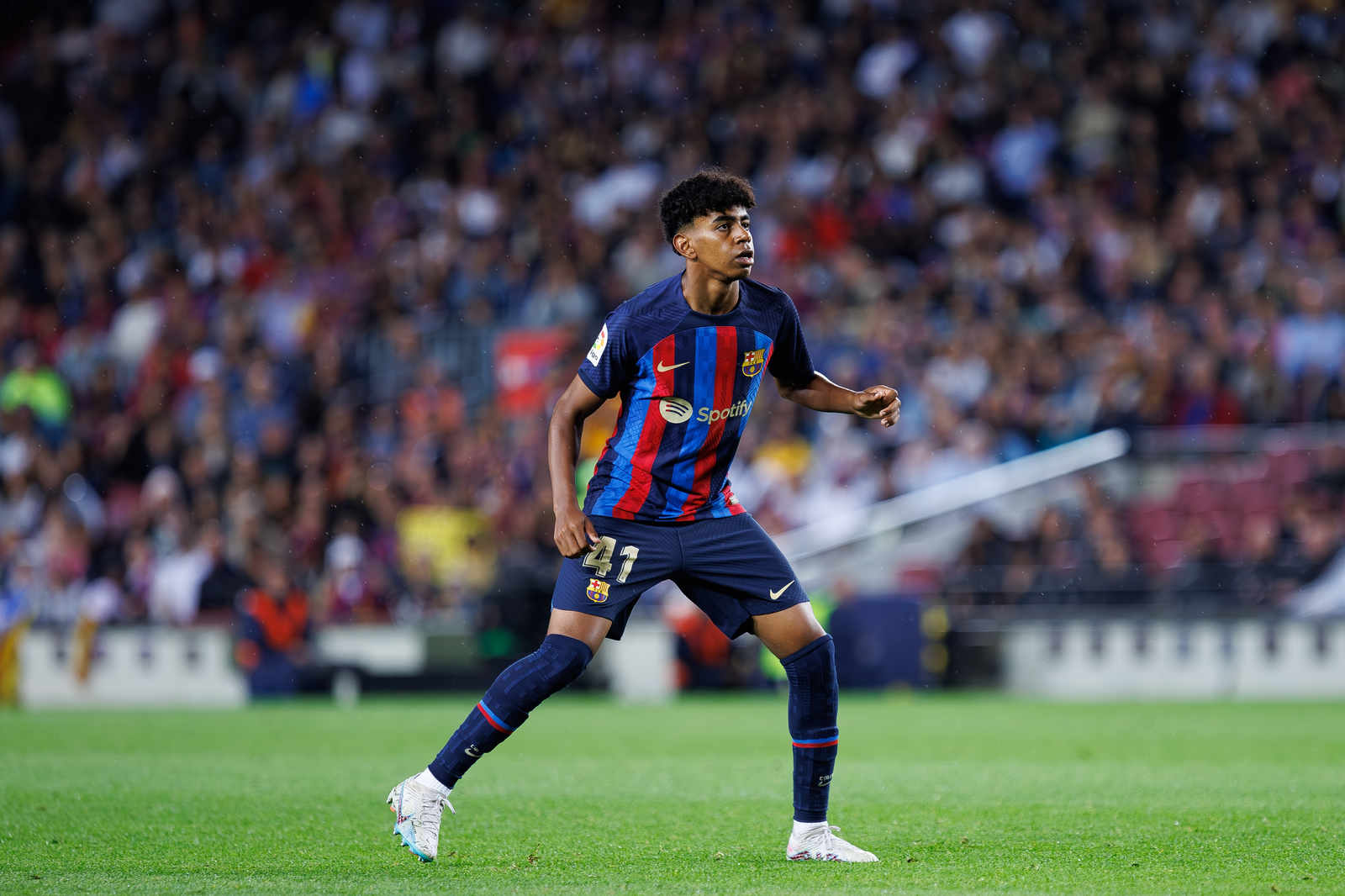
Last year, Barcelona won La Liga with a team focused on defensive solidity and pragmatism; a team that was stacking 1-0 wins like prime Atletico Madrid. But you sometimes need that pragmatism to win. Of course, Barcelona are at their best when they are in control; when they are in the driver's seat. But you have to pick your battles and you have to adapt. Adapt to the opposition, adapt to the circumstances and adapt to your team. This year, Barcelona are still winning 1-0 and sometimes get by by the skin of their teeth. Only this time, they are doing it with a bunch of kids. How impressive is that? And that, too, is the value of Xavi: rebuild and course correction. The titles are just a bonus.
He knows how difficult the job is. He knows what the club needs. He knows he’ll have to make sacrifices. He knows he will have to do the impossible. He could’ve easily decided this wasn’t the right time for him to coach Barcelona. And he would’ve been absolutely right; this is the worst time to coach Barcelona. This is Barcelona in survival mode, Barcelona in hibernation and Barcelona in preparation for spring. And yet, Xavi has answered the call and is getting his omelette ready for the future.
One egg at a time.

